We get asked a lot for more details about our Surin Project and how it differs from Elephant Nature Park and other volunteer programs. If you are looking for a way to volunteer in Thailand, Surin Project is a fantastic opportunity to spend time with elephants and learn about the intricacies of elephant tourism. Today, we’re giving you the low-down on this special project located in Surin, Thailand.
What is the Surin Project?
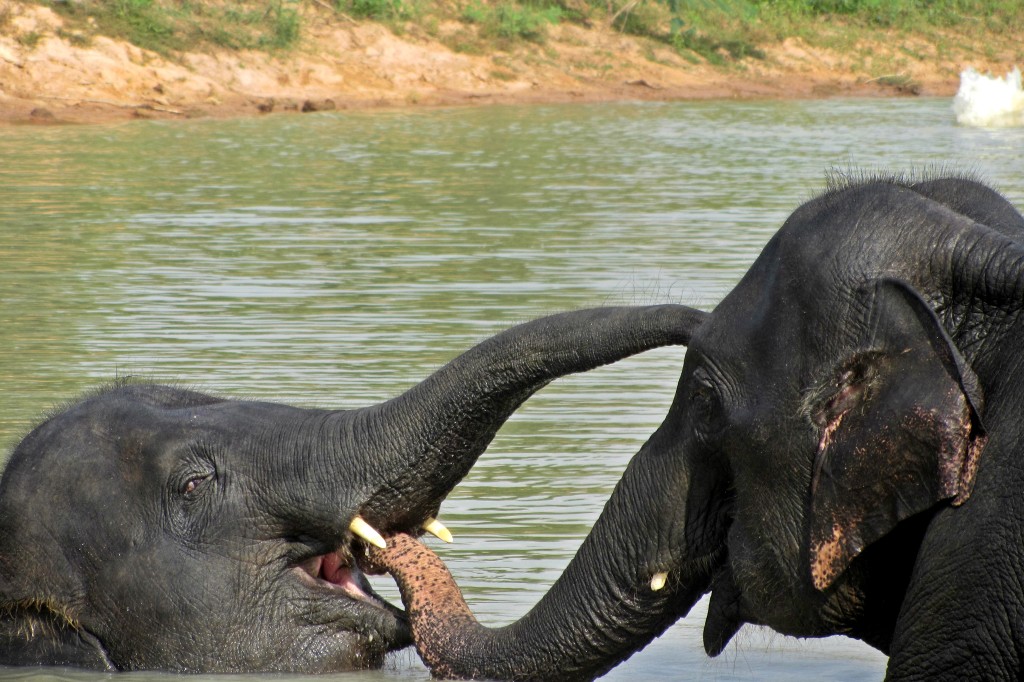
The Surin Project is a unique and innovative concept aimed at improving the living conditions of captive Asian elephants by providing economic sustainability for their owners through responsible volunteer tourism. We work alongside the Gwi community in the Surin Elephant Study Centre. We are located in the village of Ban Tha Klang in the Surin Province in North East Thailand (about six hours east of Bangkok and 14 hours south east of Chiang Mai).
The project’s main focus is to get some of the elephants in the study centre out and into a more natural setting where volunteers can walk alongside them and observe these magnificent creatures interacting with each other and acting like elephants should.
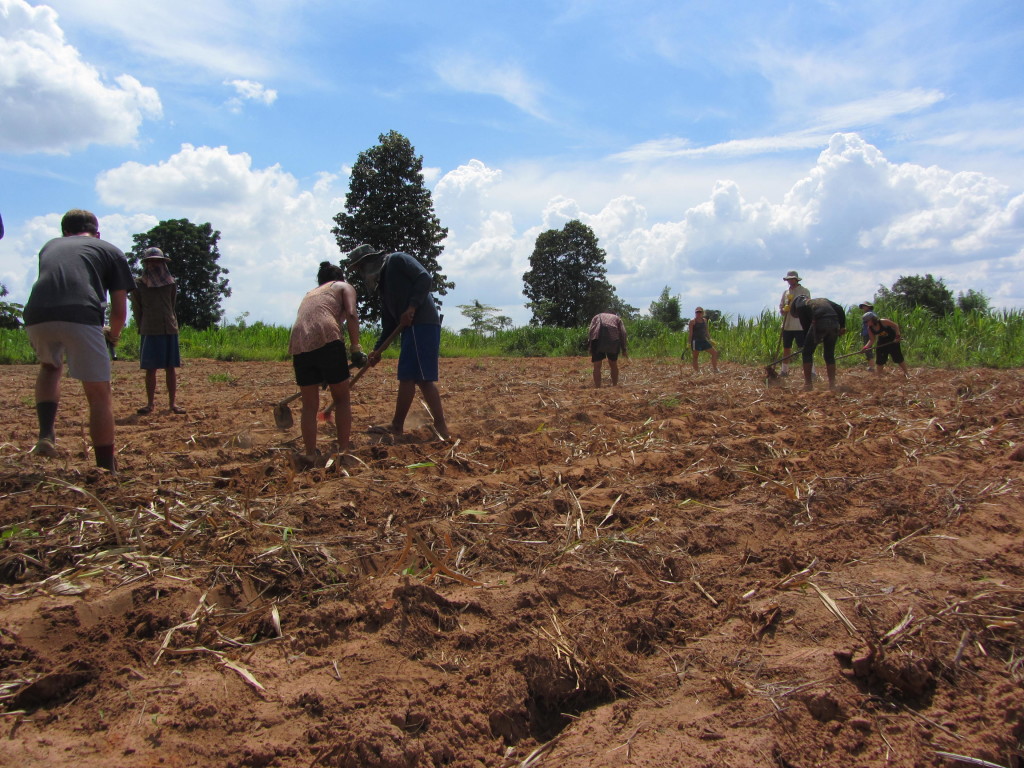
Volunteers are needed on the project to help make a positive difference and show the local community the benefits of having this type of responsible elephant-based tourism. It shows the community that people want to see elephants in a more natural setting rather than performing tricks or riding them. This is sustainable tourism and volunteers pay a fee to participate on the project which goes directly to the mahout’s salary, to pay for elephant food and help support other local businesses.
Without volunteer presence on the project, the mahouts, who need an income to support their families and feed their elephants, would only take their elephants to participate in other forms of elephant tourism to earn money to live. This most likely means that the elephants would be used for riding, elephant shows or street begging. However it is the only alternative the mahouts have in this area to make money. Participating in the Surin Project allows volunteers to see things from the mahout’s point of view and see how they really care for their elephants, but are also trying to make a living at the same time.
The Surin Project may be small but it is hoped the more volunteer numbers we can get, the more we can improve things for the elephants in the centre whilst still providing an income for the community.
The history of Surin
In 2005, the Surin Provincial Government began an initiative to reunite mahouts with their families, as their families often stayed at home in Surin while they earned an income street-begging with their elephants. They called this the ‘Take Me Home’ Project and it is located at the Surin Elephant Study Centre.
Both the Surin Provincial Administrative Organization (SPAO) and the Zoological Park Organization Thailand (ZPO) support approximately 150- 200 mahouts with a monthly salary and free housing for their families, provided they keep their privately owned elephants within the Study Centre. Unfortunately, the salary is often not enough to cover the monthly expenses of properly caring for an elephant, not to mention supporting an entire family. In order to supplement this income, many mahouts find other work outside the Study Centre, which forces their elephants to be chained up all day and all night, or perhaps they choose to have their elephants offer rides to tourists or perform in circus shows within the Study Centre.
In 2009, Sangduen “Lek” Chailert founded the Surin Project as an alternative way to support the mahouts living within the Surin Elephant Study Centre and, in turn, provide their elephants with a better life. The Surin Project can support up to 12 elephants and their mahouts who are part of the study centre to get them off the chains regularly and take them out for walks in the surrounding forest and river areas.
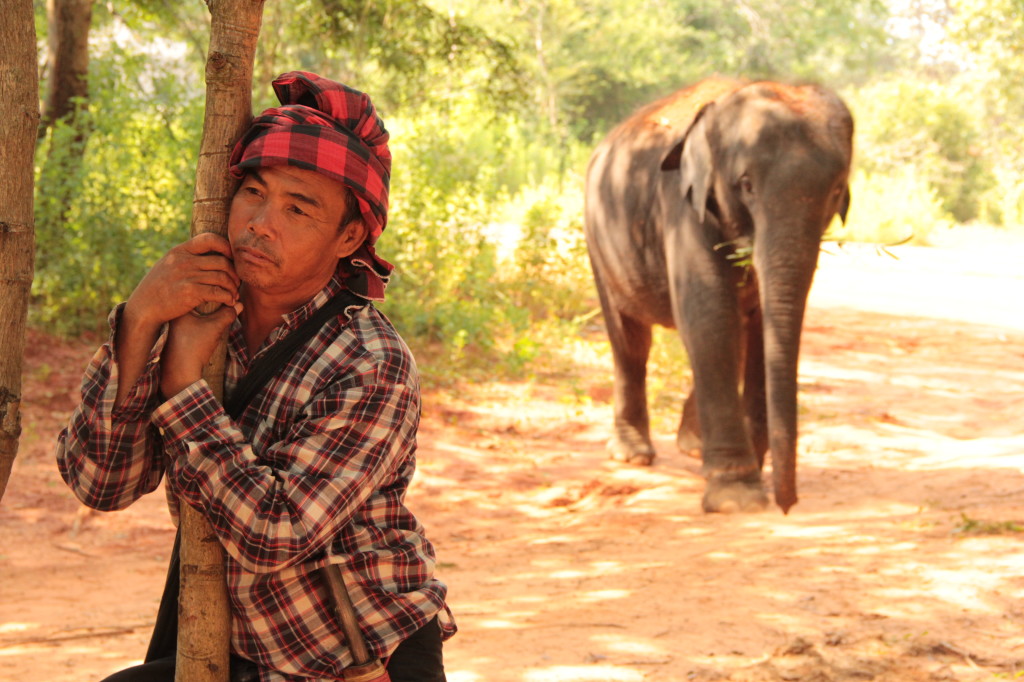
For each mahout that joins our project, we match their monthly salary received from either SPAO or ZPO, which gives them the chance to fully support their families as well as their elephants. In return, each mahout must agree to:
- leave their bullhook at home
- unchain their elephant for at least 3 hours per day
- participate in a cultural exchange evening with volunteers
- refrain from taking part in elephant rides or the local elephant show
- Assist volunteers with daily project work (cleaning shelters, cutting sugarcane for elephant food etc.)
Volunteering for Surin Project
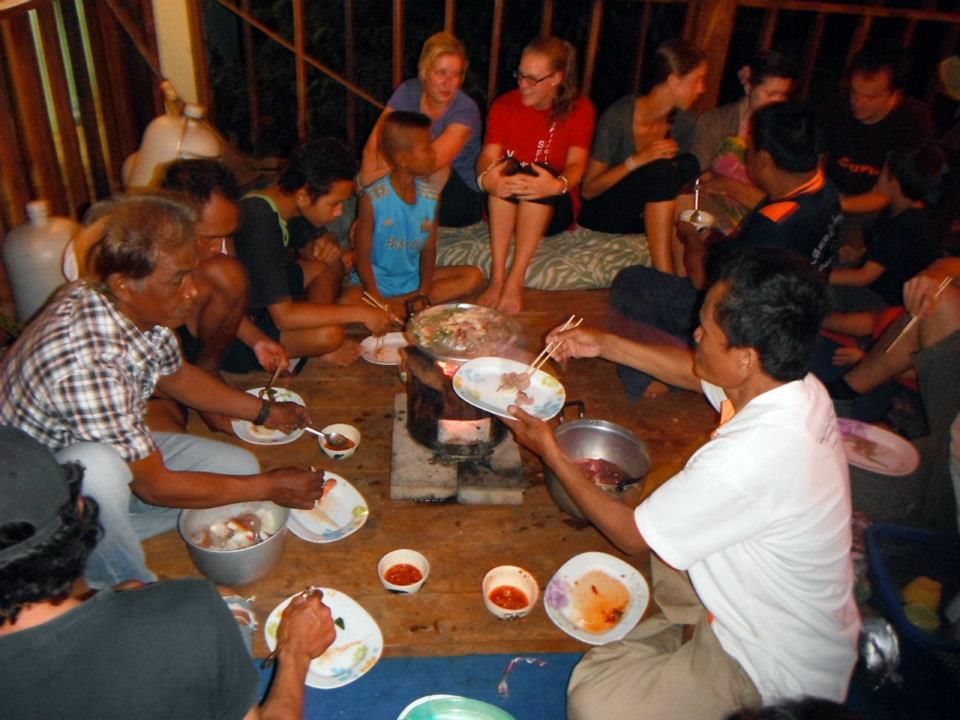
Volunteers coming to the Surin Project are immersed in the local Gwi culture in the remote village of Ban Tha Klang. They work alongside the mahouts and the local community to learn more about their elephants and help out with looking after them.
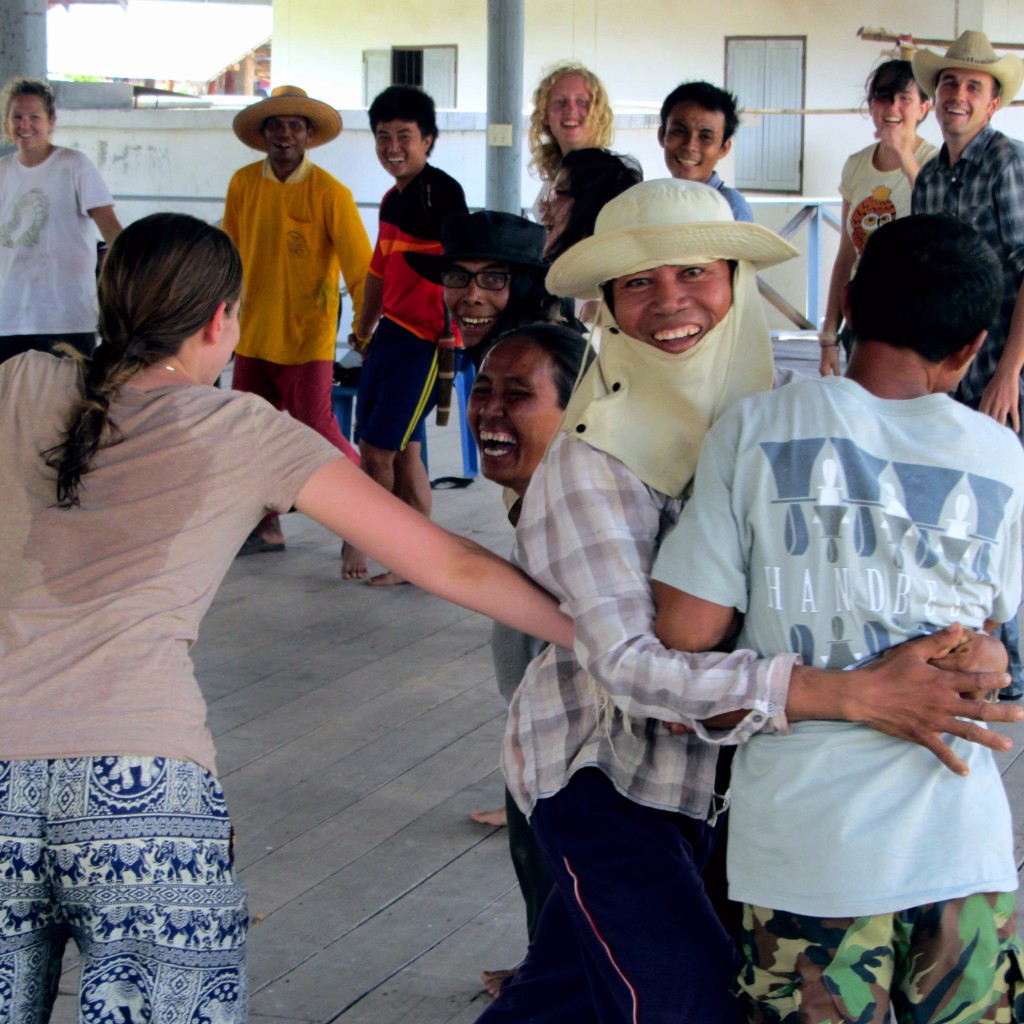
Volunteers form bonds with this very unique culture and create lifelong memories. English speaking staff on the project helps educate volunteers and allows them to gain a better understanding of what we are doing here, as well as ensuring volunteer safety at all times.
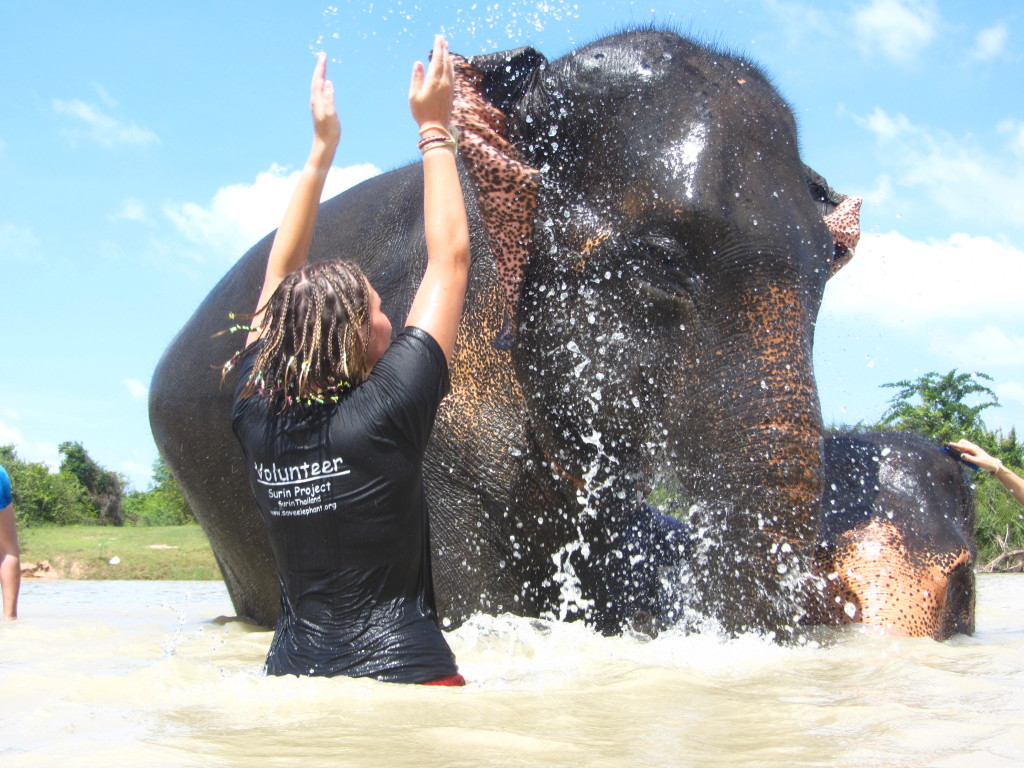
Most importantly, volunteers get a chance to go out on daily walks in the forest or down to the local river to observe the Surin Project elephants interacting with each other in a more natural setting.
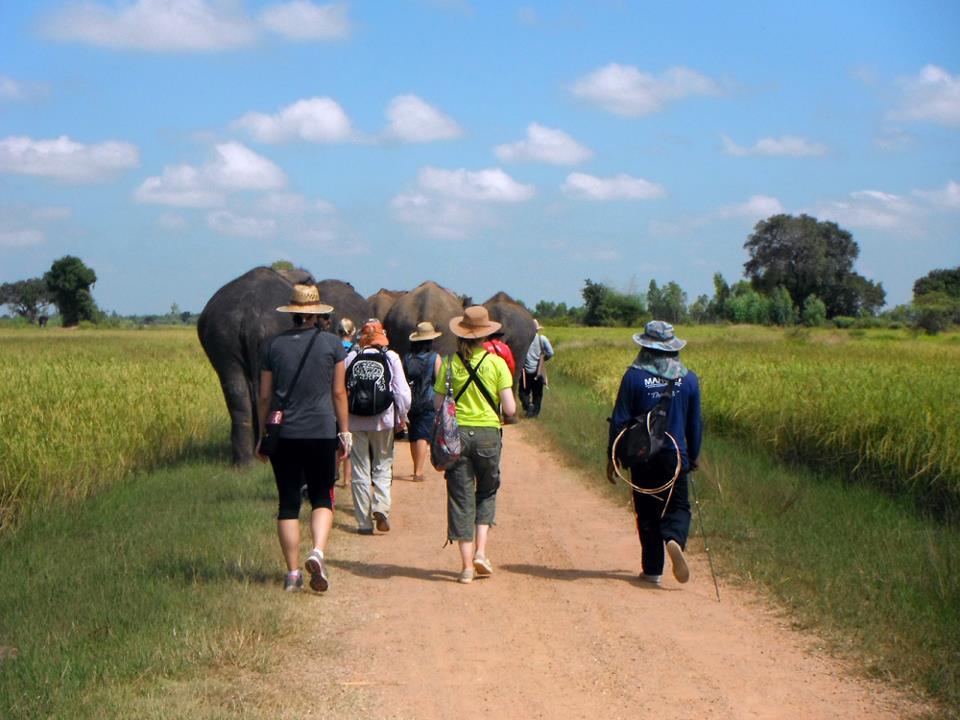
It makes for some excellent opportunities to learn more about elephant behavior, as well as get to know the mahouts who own the elephants. Volunteers interact with the elephants by feeding them and helping the mahouts to bathe them in the river.
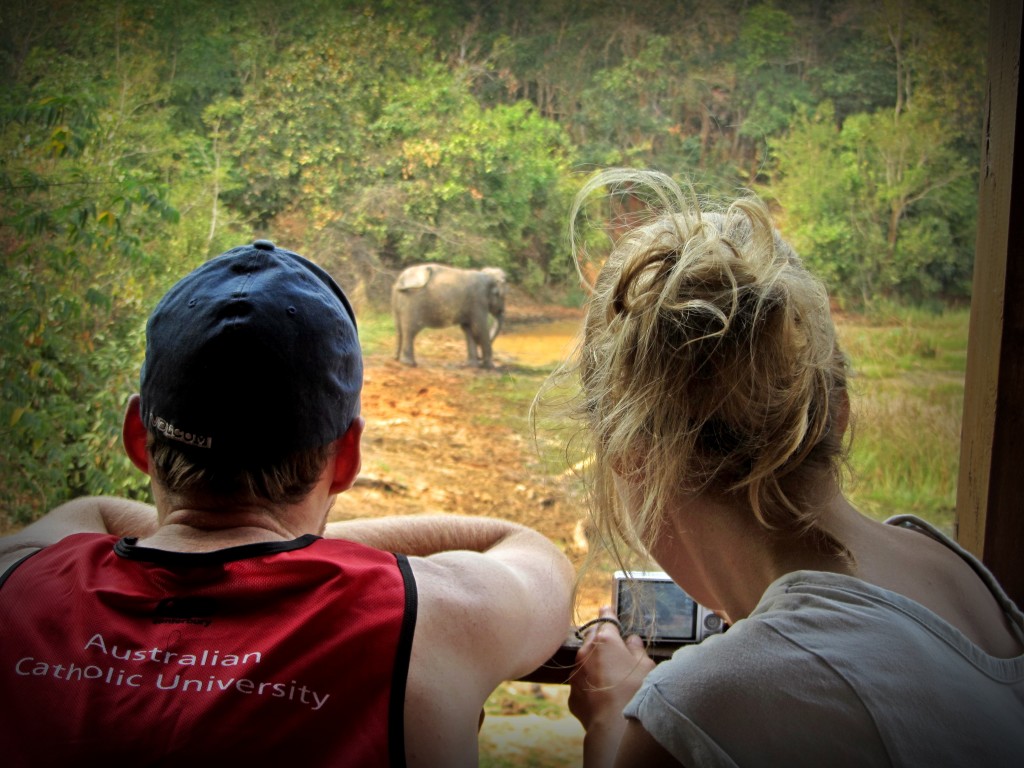
During their stay in the village volunteers can expect an attack on their senses and see some of the realities of how captive elephants can be used in the area.
It should be noted that the Surin Project is not an elephant sanctuary. For anyone who is familiar with our project at Elephant Nature Park, you will notice some considerable differences:
- The Study Center is located within the village of Baan Tha Klang, embedding you within a community with a unique Thai culture. Volunteers are guests in this village and should respect the local customs and dress code.
- The land is government-owned, so our ability to build new structures is limited
- The Surin Project does not own or buy any elephants, the elephants are owned by their mahouts, so how they are treated is ultimately not our decision. Mahouts on the project can leave at any time with their elephant if they need to make more money. It’s up to us to provide them with enough incentive to stay on the project and support our concept (we can only do this with volunteer support).
- There can be between 150-200 elephants living at the Study Centre, The Surin Project is only a very small part of this and currently can only support up to 12 elephants.
- Elephants that are not members of the Surin Project can be kept on their chains for most of the day with little or no shade and nothing to do. Many show signs of stress.
- Many of the elephants in the area are used for other forms of elephant tourism, such as the local elephant show and elephant riding, as well as local cultural ceremonies and parades.
- Volunteers may be exposed to a certain amount of suffering during their stay because of these surroundings and can witness the use of the bullhook which many mahouts in the area use to control their elephants.
For many, this may paint a dark picture of what the Surin Project is. However, volunteers must remember that with their presence here, they are a part of something positive. While it may seem like they can’t do much to help the other elephants in the area, they are. By participating in our project, they are helping show the mahouts and local community that they want to see a more responsible form of elephant tourism.
The use of elephants goes back many centuries and the way they use elephants is deeply engrained in the local Gwi culture. We cannot tell this community what to do, or to change their practices. If we did this, the Surin Project can be asked to leave the centre, eliminating any positive effect we may have.
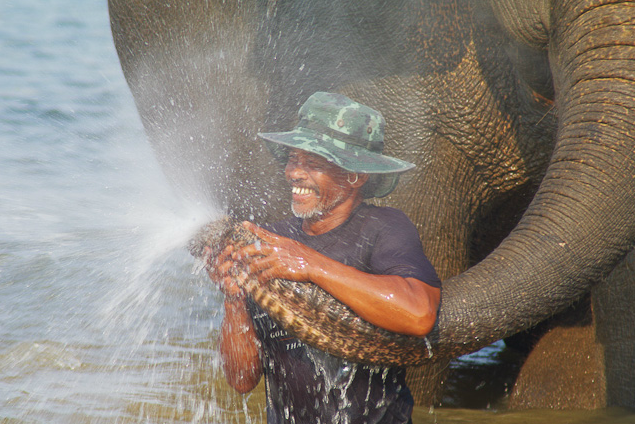
What we can do is show the local mahouts the benefits of having responsible volunteer tourism in their community (a very foreign concept too many of them) and that people want to see their elephants living in a more natural setting. In time, this will provide them with the tools to adapt their mind-set to be more considerate of their elephants’ welfare. And as our volunteer registration for the project expands, so too will our ability to support more elephants.
This makes a volunteer’s role very important in the long-term survival and development of the project. Volunteers who visit the Surin Project leave with a feeling that they have really helped make a difference, as well as an understanding the complex problems captive (and wild) elephants face in the wold today. Many volunteers become activists in their home countries to help spread the word and work on solutions to these problems.
For more information on Surin Project:
Follow Surin Project on Facebook
Check out what others are saying on Trip Advisor













I have read the article and want to come and do this.. only where do I stay at night and where do I eat? Who picks me up at the airport once there, I have never left USA?